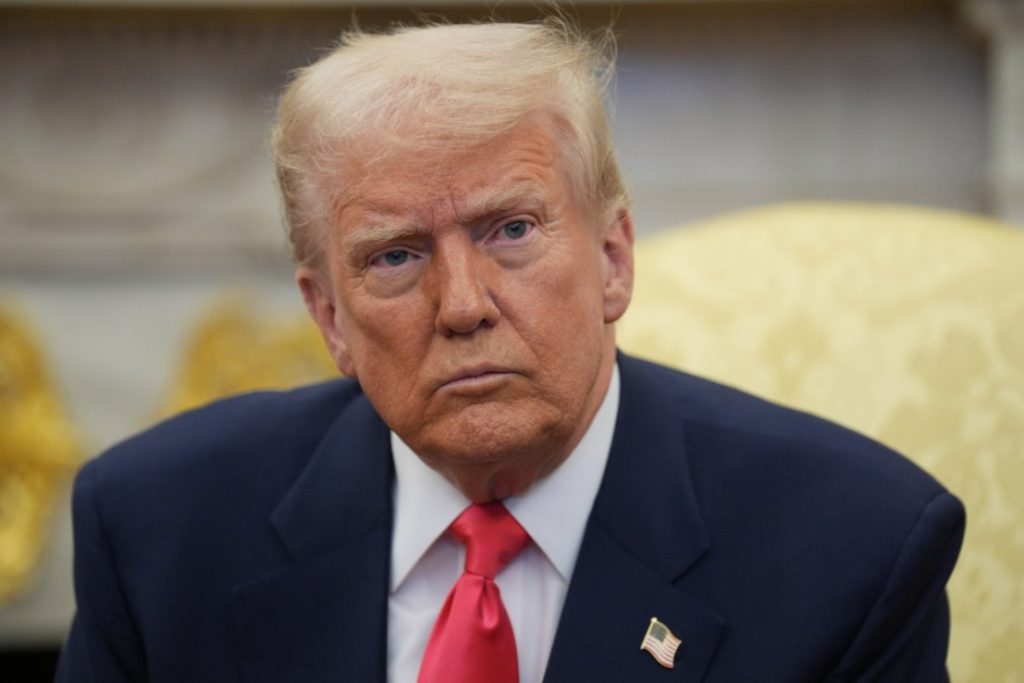
In a significant move that has sent shockwaves through global trade circles, President Donald Trump has confirmed the imposition of a 10% tariff on UK exports to the United States. This announcement, made in a characteristically bold statement at the White House Rose Garden, marks a pivotal moment in UK-US trade relations and adds a layer of complexity to Britain’s economic landscape. The European Union faces an even steeper tariff of 20% on its exports, alongside variable rates for multiple other nations, indicating a broader shake-up of international trade protocols.
The Tariff’s Impact on the UK Economy
The imposition of this tariff comes at a precarious time for the UK economy. Analysts at the National Institute for Economic and Social Research (NIESR) have forecasted a downturn in UK GDP growth, predicting a fall to a mere 0.6% this year, with near-zero growth anticipated for 2026. The timing of this announcement, following closely on the heels of Chancellor Rachel Reeves’ Spring Statement, adds to concerns about the UK’s economic resilience and future growth trajectory.
Trump’s rhetoric during the announcement was notably assertive, framing the tariffs as part of a broader agenda to bolster American industry and reduce national debt. Declaring April 2, 2025, as “Liberation Day,” he positioned the move as essential for reasserting America’s economic independence, suggesting that foreign trade practices have for too long disadvantaged the US.
Reactions from the UK and Beyond
The UK government and businesses have expressed deep concerns regarding the potential fallout from these tariffs. Current export levels to the US, which stand at approximately £60 billion annually, highlight the significance of this trading relationship. The automotive industry, with £7.6 billion worth of cars exported last year, is expected to be particularly affected due to an additional 25% tariff on foreign-made automobiles.
Key figures within the UK’s business landscape have voiced their disquiet. Rain Newton-Smith, director-general of the Confederation for British Industry (CBI), described the tariffs as “deeply troubling” and warned against retaliatory measures that could exacerbate supply chain disruptions. Similarly, Tina McKenzie from the Federation of Small Businesses (FSB) termed the development a “major blow,” urging the government to negotiate a trade agreement as a remedy.
The Broader Political Repercussions
Within the political arena, responses have varied across the spectrum. Business Secretary Jonathan Reynolds emphasized the government’s commitment to safeguarding UK interests, hinting at potential diplomatic efforts to mitigate the tariff’s impact. He reassured stakeholders of the UK’s willingness to engage in constructive dialogues with the United States, its closest ally, to secure favorable trade terms.
Conservative shadow business and trade secretary Andrew Griffith critiqued the current administration’s approach, pointing out missed opportunities to forestall such tariffs through proactive negotiation. He highlighted the urgency for renewed engagement with US counterparts to stave off potential economic repercussions that could impact both British and American citizens alike.
A Call to Diplomacy
As Britain navigates these challenging diplomatic waters, the future of its trade relations, particularly with the United States, remains in the balance. The situation calls for a measured, strategic response that prioritizes open communication, economic partnerships, and long-term stability over short-term gains or confrontational policies. Key decision-makers across industries and within government are tasked with fostering an environment conducive to negotiation, seeking pathways that will avert a protracted trade conflict.
The coming days will determine the efficacy of the UK’s response and its ability to shield domestic markets from the broader implications of these tariffs, all while attempting to restore and maintain robust economic relationships on the global stage. As the dialogue continues, stakeholders hope for resolutions that align with international economic cooperation standards.




